McCarthy's Shutdown - Who Wins and Who Loses
At the Races in the House
What do you get when you cross a Freedom Caucus with a razor thin house majority and an easily deposed Speaker? You get the 118th Congress.
Speaker Kevin McCarthy (R-CA) has had a rough ride in House leadership, and it may be about to get worse. As part of the negotiations to coronate the Representative from California as Speaker of the House he had to make swathes of concessions to his party’s right flank, and they may about to bite back either way. McCarthy alongside President Biden and Senate Democrats were able to avoid a debt default and subsequent Government shutdown earlier this Summer, but the time has come again where spending bills must be passed, and far-right Republicans in the house are loathed to do so unless they can extract appropriate concessions from leadership. McCarthy is vulnerable to these demands, as he had to concede in the Rules package that a motion to vacate the Speaker’s chair can be called by just one member and now a document has been found in a Congressional bathroom purporting to be a motion to vacate the Speakership, penned by Rep. Matt Gaetz (R-FL).
This article will go over the demands of the Freedom Caucus and their affiliates, the remedies considered, which remedies may actually pass and finally, who benefits politically from a Government shutdown.
Freedom from Spending
The House Freedom Caucus has arguably been the biggest thorn in McCarthy’s side since the 2022 midterms. They forced him to face well over a dozen ballots to eventually be elected as Speaker of the House alongside forcing him to concede immense power through the Rules package - most notably the rule surrounding the motion to vacate mentioned earlier. This is a tool they have leveraged against the Speaker in recent months, and now it has become their biggest crutch in getting what they want from these spending bills. But what exactly do they want?
Southern Border
The first of the Freedom Caucus’ demands is to allocate spending towards protecting the Southern border against what they view as an unmitigated influx of illegal immigrants, fentanyl and cartel crime. These demands are found in HR.2, or the “Border Crackdown Bill,” which House Republicans want to see included in budget negotiations. Illegal immigration has often been a rallying point for Republican politicians, and it is likely that McCarthy and Republican leadership support delegating funds to either “building the wall” or otherwise protecting the border. It is unclear if this will be a sticking point for far-right legislators however as McCarthy’s proposed stop-gap bill to fund the Government through to the end of October would cut expenditure by 8% bar for a number of departments, including border security. This may be one area where McCarthy can, and would wish to, meet their demands.
The Department of Justice
The demands of the Freedom Caucus - spearheaded by Rep. Scott Perry (R-PA) begin to become less clear when we look at their demands regarding the DOJ. The caucus believes that the FBI and DOJ have been “weaponised” by Biden and Democrats, and are refusing to co-operate on spending until this is resolved. How the Speaker will placate them on this issue is yet to be seen, but his openness to an impeachment investigation of the President may indicate that he is looking into resolving the “weaponisation of the DOJ.” Time will only tell if this is enough to satisfy the more rabid members of the house and bring them into step.
Wokeness at the Pentagon
Another sticking point for the House’s right flank is “woke policies at the Pentagon.” This may be where the Freedom Caucus have flexed the most muscle, shown by their recent success in voting down the Pentagon spending bill. The dissenting voices oppose abortion leave, which is sanctioned by the Pentagon, and diversity and inclusion initiatives inside the Pentagon. They are unlikely to relent on these issues either. It is these cultural issues that have galvanised the right flank of the modern day Republican Party against sensible governance, and there will likely be no concessions made in these areas. If the Freedom caucus end up getting their way, and the bill is passed stipulating that DEI initiatives and abortion are no longer allowed at the Pentagon this will be a short lived victory, as the Democratic controlled Senate would almost certainly vote these provisions down.
Funding for Ukraine
The other sticking point for the GOP’s right flank is money for Ukraine, with some isolationist members such as Rep. Marjorie Taylor Greene (R-GA) stating their refusal to sign on to any spending measure that doesn’t curtail spending on Ukraine. This has even manifested in opposition to McCarthy’s continuing resolution, which provides no money to Ukraine but faces opposition by the Freedom Caucus due to it’s temporary nature. McCarthy can afford to lose a couple of these holdouts, but any more is dangerous territory.
For now, it is unclear how House leadership intends to navigate these barriers.
Breaking the Deadlock
As has been discussed already, the Freedom Caucus have three main objections to the spending packages making their way through Congress. These are alongside other voices, such as Rep. Bob Good (R-VA) claiming they were hoodwinked by House Leadership who aren’t following their commitments made in the January negotiations regarding spending. With this in mind, and the many contrary demands from the House majority, the question must be asked - can McCarthy actually break the deadlock?
Continuing Resolution
The only out openly being considered by Republicans is a Continuing Resolution (CR) until the end of October so they can continue funding Government services while debates rage on inside the party. Recently, Main Street and the Freedom Caucus published a CR, which would be acceptable to both factions of the Republican Party but would almost certainly die in the Senate. This may be a game of high stakes football, where the House is deciding to pass the burden of the shutdown to the Senate, to try and point fingers and the Democrats should a shutdown occur. Senate Majority Leader Chuck Schumer (D-NY) has also outright declared that the CR published by the GOP groups would not survive the senate. The CR is also in even more peril, as GOP leadership have withdrawn a motion to begin a debate on the resolution due to party infighting and a series negotiations that are ongoing with Freedom Caucus members. Some members of the GOP’s right flank are also outwardly declaring that they believe a shutdown is inevitable - a grim sight for Republican’s still holding out for the CR to pass.
Spending Cuts
As of now, the only way to placate the Freedom Caucus seems to be for McCarthy to bite his tongue and allow harsh spending cuts to be included in appropriations - cuts that would go further than the 8% cut proposed in the CR. But this is a temporary solution. Spending cuts, ending “wokeness at the Pentagon” etc will get the bill through the House, but it would be dead on arrival in the Senate. Even if they survived the Senate, President Biden has said that the Freedom Caucus’ defence bill to remove “wokeness from the Pentagon” would be vetoed should it make it to his desk. Furthermore, the one area where budget cuts aren’t being considered - the DOD, has just had the prospect of debating its budget rejected due to five Republican’s breaking ranks and voting against it.
Put simply, there aren’t budget cuts extensive enough to placate the House’s right flank that would survive a Democratic Senate or President Biden’s veto.
Bipartisan Solutions
The other solution available as of now may be a bipartisan spending bill, where McCarthy would go over the Freedom Caucus and would co-operate with Democrats to write a bill that can clear both chambers of Congress. This would be hugely unpopular with conservatives however, and may well cost McCarthy the Speaker’s gavel. It is also uncertain as to how this could be achieved. With there being at least a dozen Republican holdouts, McCarthy would need a minimum of around a dozen Democrats to support the spending bill, but a bill with that little support from the Democrats may well be doomed in the Senate or by the veto pen.
For McCarthy to be certain that he can pass a spending bill, that will actually go into law, he would need massive Democratic support but for each Democrat expressing support in a spending bill, he may face a Freedom Caucus member dissenting. It’s a difficult calculus as Democrats would in no way support the culture war aspects of the bill, and would have difficulty stomaching an 8% reduction in discretionary spending. On the flipside, losing the battle on abortion and “woke DEI training” would be something that few Republicans would be willing to do in today’s political climate. A government shutdown isn’t something that most politicians want on their record, so one side may have to end up biting their tongue and supporting a bipartisan spending bill, but it is too early (or too late) in negotiations to tell who blinks first.
Winners and Losers
The final question to be answered in this spending saga is who can claim a victory from this mess and who snatches a loss. Right now the picture is still emerging, but as of writing it would appear that Democrats are more likely to come off unscathed than Republicans are. Below I will outline two scenarios, one where Republicans come out on top and another where Democrats come out with a cleaner image. The latter is the most likely.
Republican Jubilations
For Republicans to spin a claim victory in this spending limit episode, they will need to find a way to blame Democrats for the deadlock and/or the shutdown that occurs. To do this, they need to convince the American public that it isn’t, in fact, the dysfunction between different factions within the House Republican Caucus, but the lack of compromise from the left that has caused the government to cease most of it’s functions.
The easiest way to achieve this is for the House to pass a continuing resolution that can survive a Democratic Senate, and use the next month to forge a spending bill that appeases the Freedom Caucus and moderates alike. What this might look like I can only speculate at this point, but it would likely include removing abortion leave from the Pentagon, creating some sort of extra oversight for the DOJ and fairly extensive (10-15%) cuts to discretionary spending. The Defence and Veteran’s Affairs Departments would be unscathed. This bill would likely not garner full support from Republican’s, and moderates such as Rep. Nancy Mace (R-SC) would likely still dissent, while committed libertarians like Rep. Thomas Massie (R-KY) would argue the bill didn’t go far enough. Despite these dissents, the bill would narrowly pass.
This is where Republicans would have to begin spinning the narrative, as when the bill goes to the Senate that is likely where it’s life would end. Republicans will have to blast the airwaves that their bill is the product of a great deal of compromise, between the different flanks of the party and that, as a result, it deserves to pass the Senate. It would be a game of convincing the American Public that the Senate are the real obstructionists, who want to shut the government down until they can instate “woke policy” and spending money they don’t have.
I’m not convinced that the public would believe this, but it’s about the best route out of this crisis for Republicans, and is the most likely route for them to claim a win in this battle - unless the Freedom Caucus somehow come round to the idea of moderating just a little bit.
Democratic Success
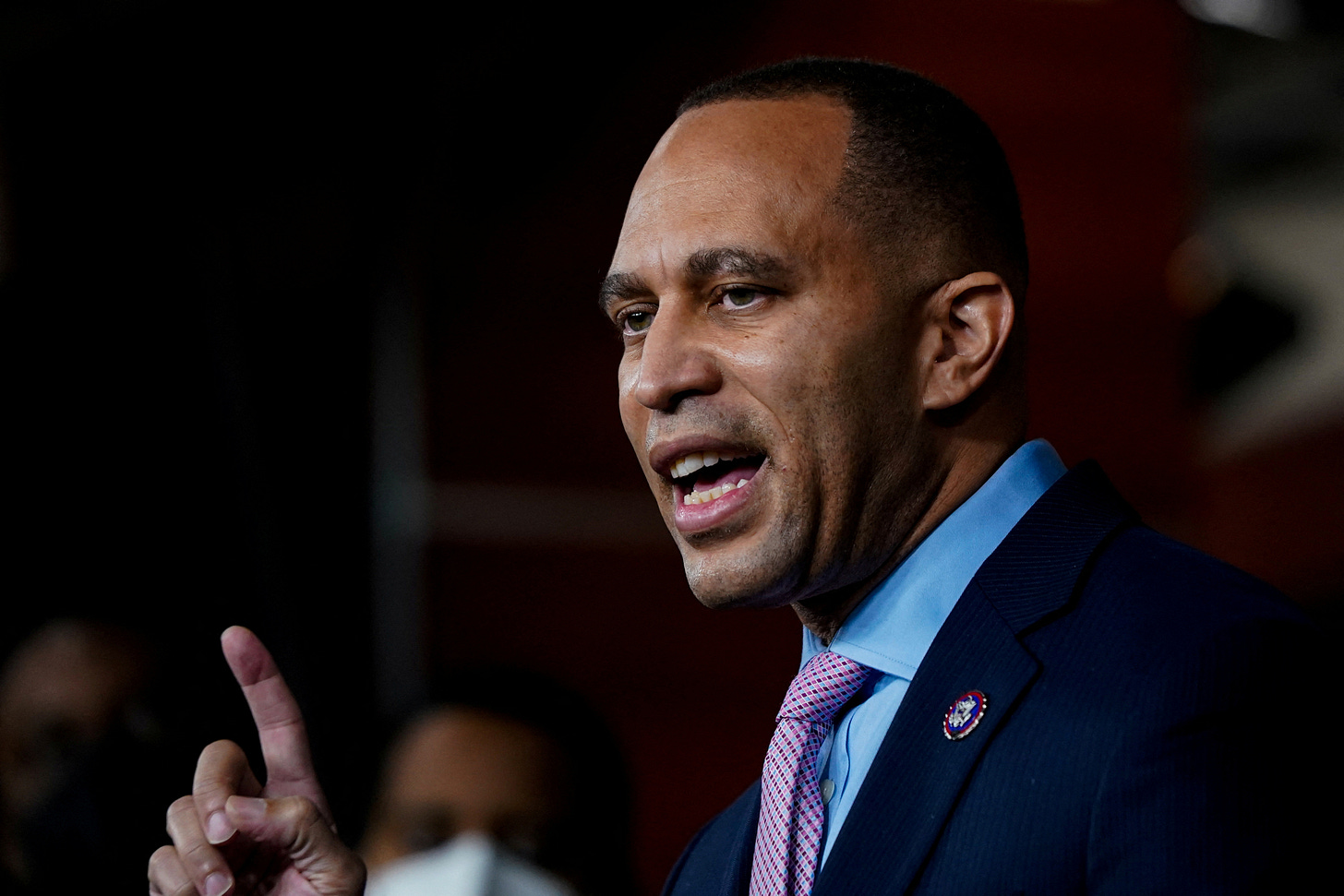
Far less mental gymnastics has to be done to envisage a world where Democrats succeed over Republicans, as the gridlock in the House is entirely the work of Republican infighting and general disarray. All Democrats need is for the GOP congress to continue the path they are currently on, where at least a dozen members are outright holdouts on even a continuing resolution, and a larger number will vote down any spending bills between now and the 31st September - the deadline for a bill to be passed. Senate Minority Leader Mitch McConnell (R-KY) has also acknowledged that a shutdown will be bad news politically for Republicans.
The only way that Democrats could snatch defeat from the jaws of victory now would be if a handful of Democratic Representatives went out of their way to support a McCarthy spending bill which was either controversial in some way or had no way of passing the Senate. This would put the burden to avoid a shutdown on those particular Congressmen (perhaps the new Blue Dog Coalition), and the Democratic Party by proxy to resolve the deadlock. This isn’t a likely scenario, and if all goes as it currently is then we should expect Republicans to continue taking flak over the spending debacle and sour their opinion in the eyes of the voting public.
Concluding
In summary, a shutdown may seem inevitable this late in play, and it’s not clear that Republican negotiating tactics are going to be sufficient to any extent. Every time a compromise has been floated so far, it has been met by a dozen or so Freedom Caucus members stating their stalwart opposition to it.
Unless McCarthy can whip the troops into shape, or reach across the aisle, then a shutdown seems inevitable and it will likely be a blow to the Republican Party’s electoral prospects.



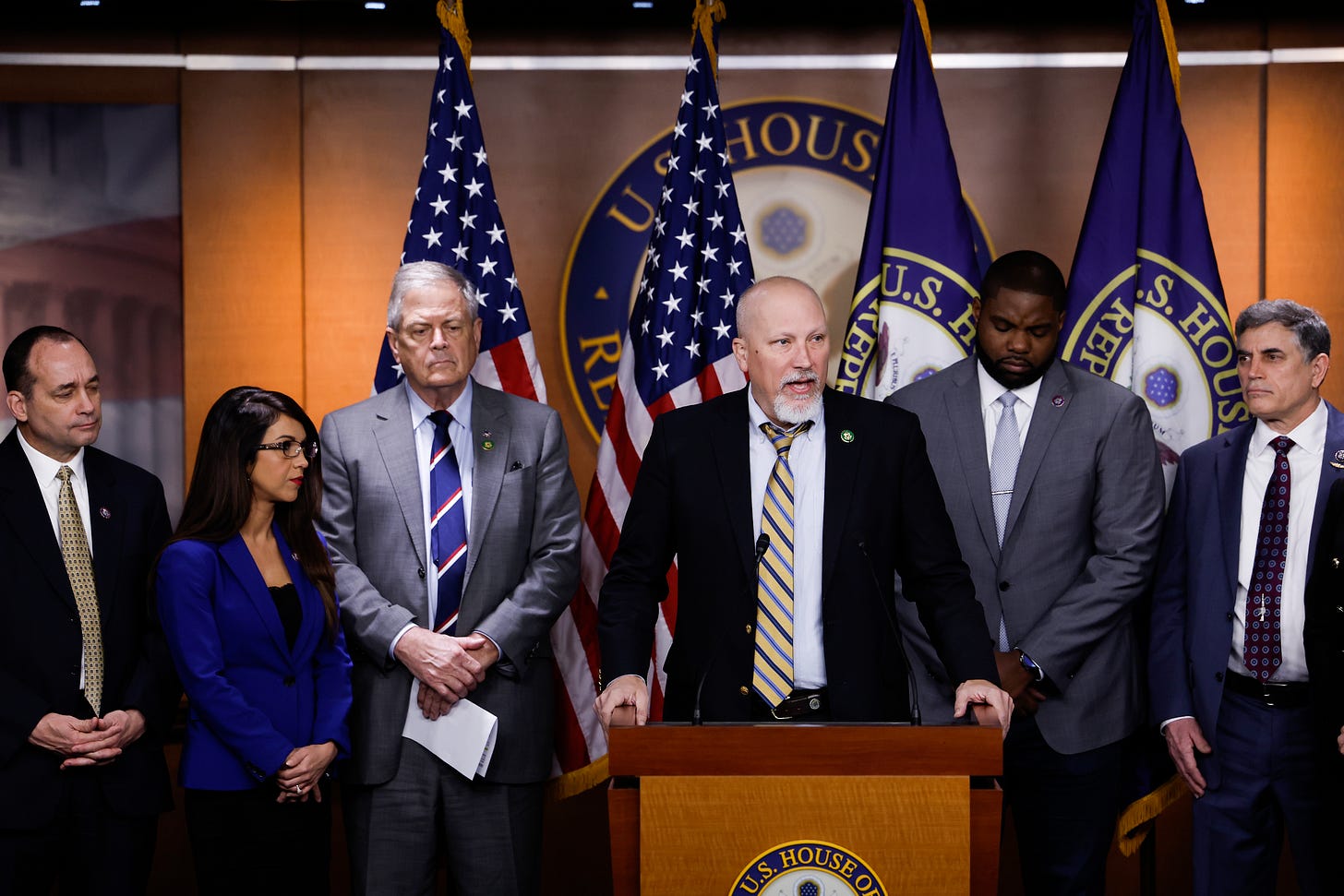
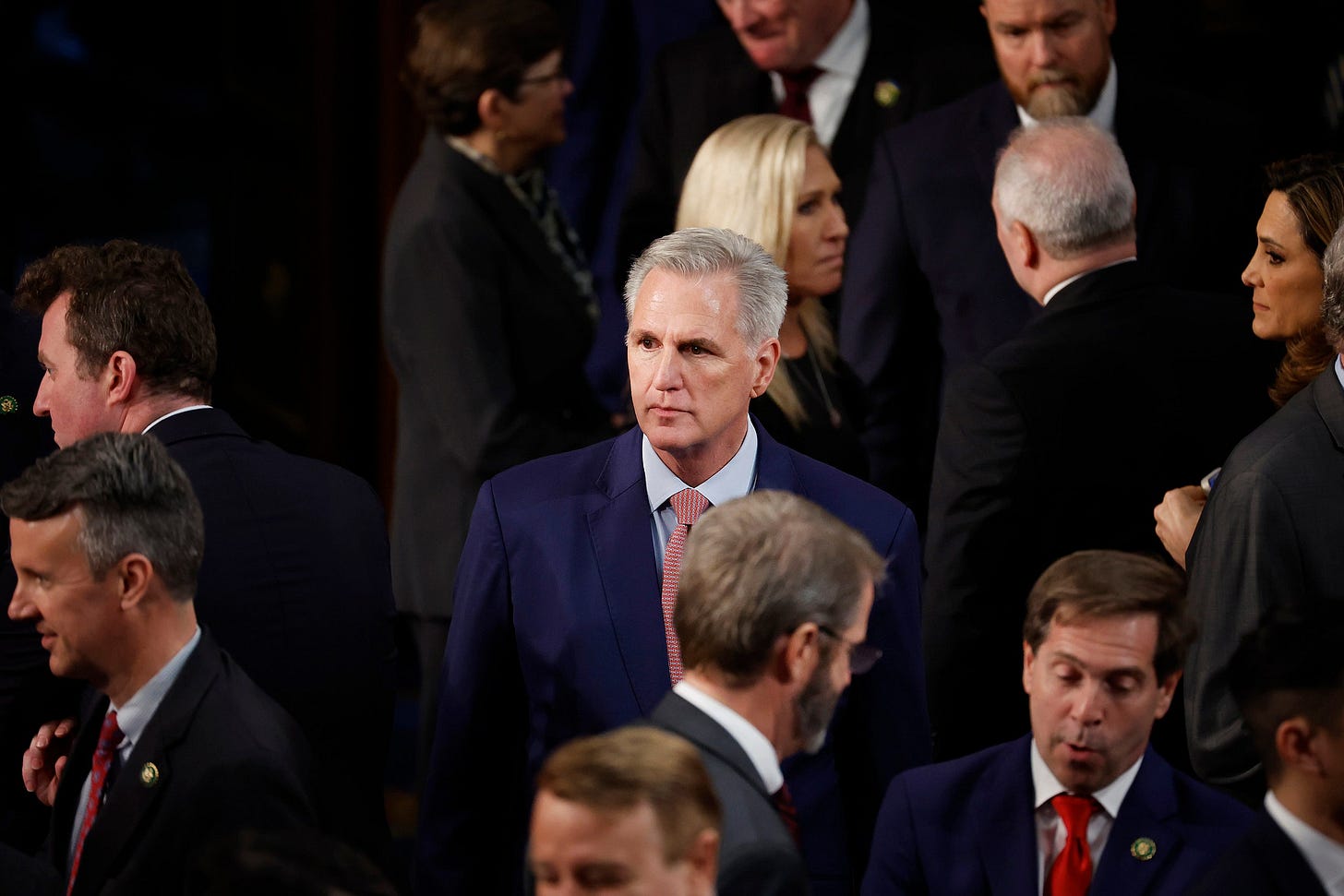
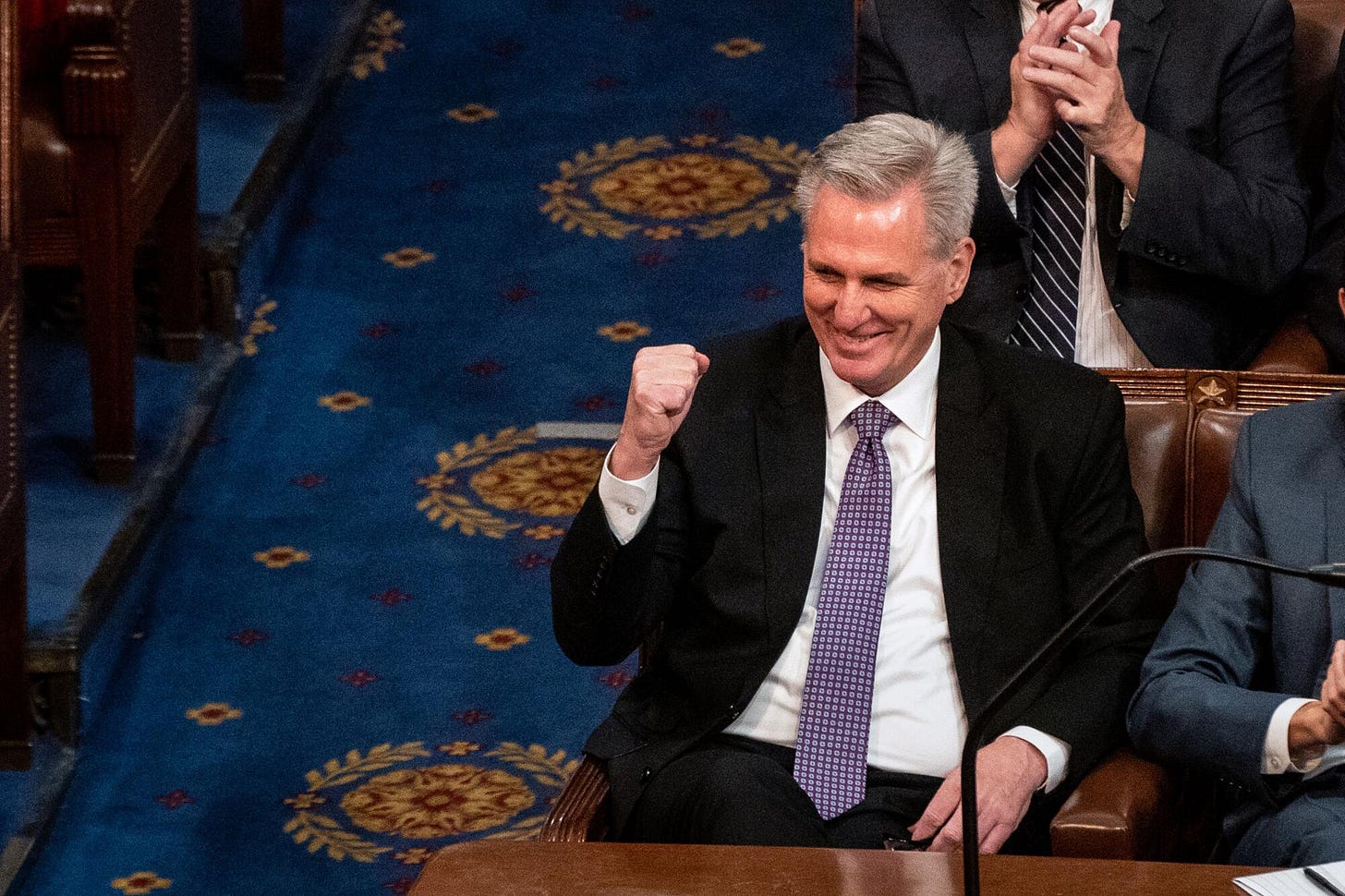
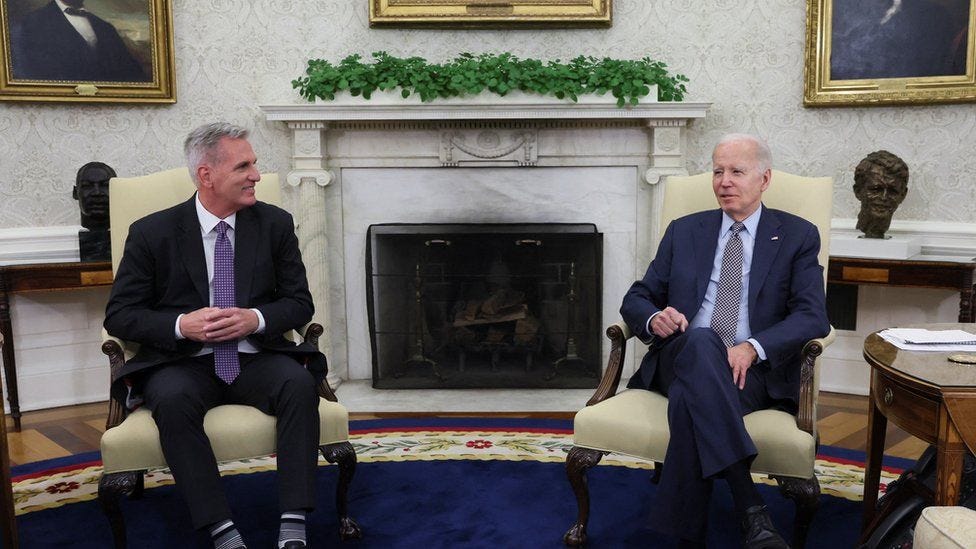
The Freedom Caucus has nothing to fear from causing a shutdown. It’s helpful in their primaries and doesn’t hurt them much in the general. So, they force McCarthy to own as much of it as possible until there’s nothing for it but to strike a deal with Jeffries on a CR. When that happens they vacate the chair and keep it empty and run out the clock with vote after vote on Speaker. After McCarthy gives up, they offer it to a succession of candidates on increasingly ridiculous demands and keep reneging. Finally, the big reveal: a clean, but very, very short CR in exchange for one of their own as Speaker.
Please get out of my walls